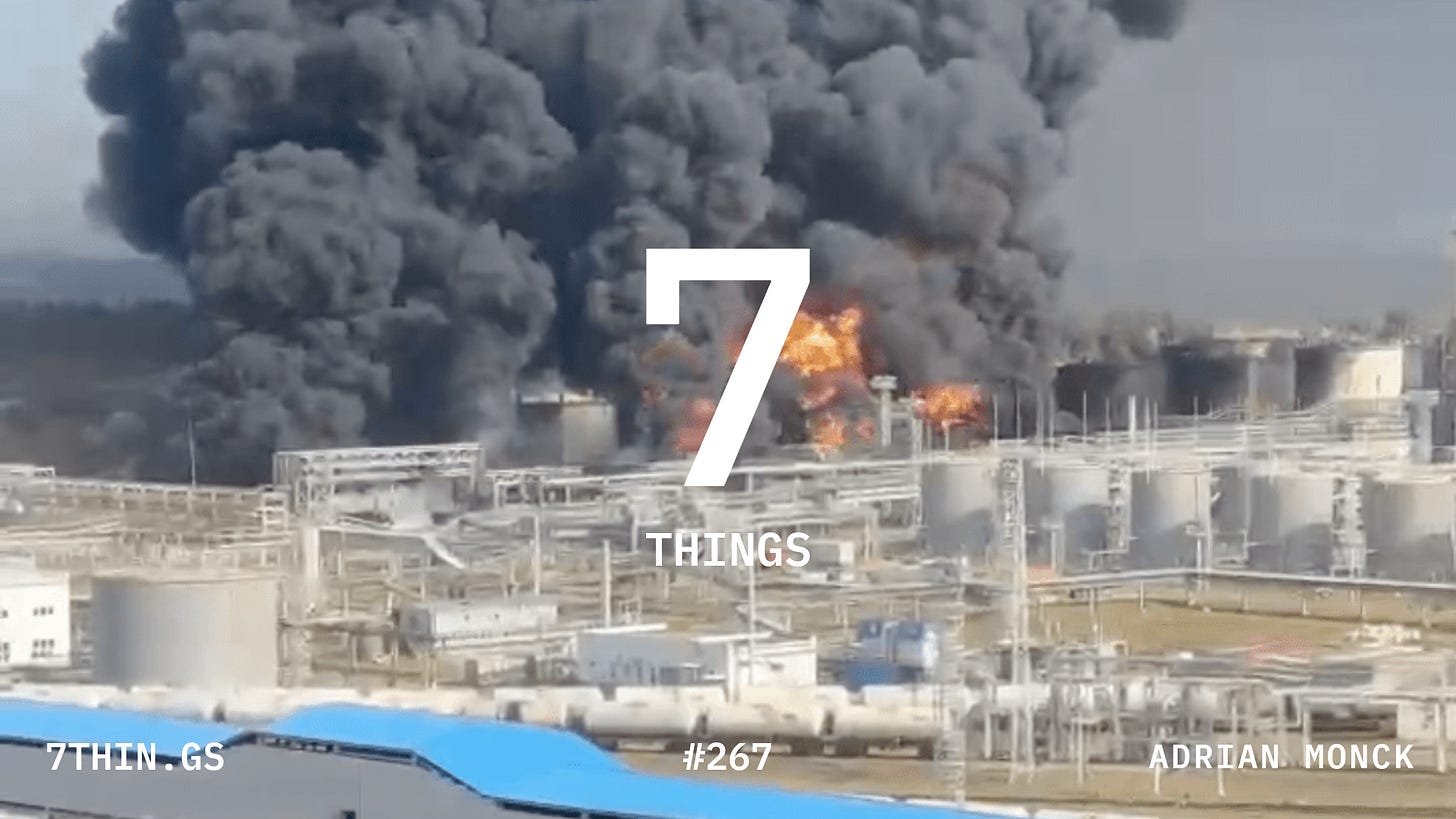The Uncomfortable Economics of Making Peace in Ukraine
When corporations become diplomats, whose interests are really being served?
Grüezi, or as they say in Austria, Griaß Gott!
Two bits of housekeeping:
I hate to shill for my paid newsletter – One Big Thing – but if you’d been reading last week, then yesterday’s Reuters and Wall Street Journal scoops might not have come as such a surprise.
7thin.gs is going to be cycling down the Danube from Passau’s Prince-Bishops, past Mauthausen, …




